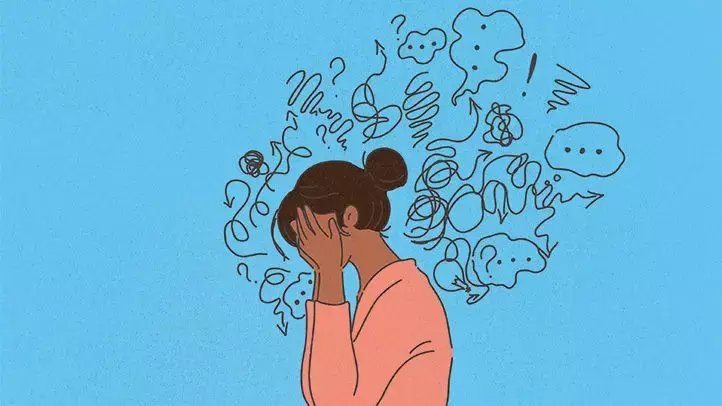- Home
- Medical news & Guidelines
- Anesthesiology
- Cardiology and CTVS
- Critical Care
- Dentistry
- Dermatology
- Diabetes and Endocrinology
- ENT
- Gastroenterology
- Medicine
- Nephrology
- Neurology
- Obstretics-Gynaecology
- Oncology
- Ophthalmology
- Orthopaedics
- Pediatrics-Neonatology
- Psychiatry
- Pulmonology
- Radiology
- Surgery
- Urology
- Laboratory Medicine
- Diet
- Nursing
- Paramedical
- Physiotherapy
- Health news
- Fact Check
- Bone Health Fact Check
- Brain Health Fact Check
- Cancer Related Fact Check
- Child Care Fact Check
- Dental and oral health fact check
- Diabetes and metabolic health fact check
- Diet and Nutrition Fact Check
- Eye and ENT Care Fact Check
- Fitness fact check
- Gut health fact check
- Heart health fact check
- Kidney health fact check
- Medical education fact check
- Men's health fact check
- Respiratory fact check
- Skin and hair care fact check
- Vaccine and Immunization fact check
- Women's health fact check
- AYUSH
- State News
- Andaman and Nicobar Islands
- Andhra Pradesh
- Arunachal Pradesh
- Assam
- Bihar
- Chandigarh
- Chattisgarh
- Dadra and Nagar Haveli
- Daman and Diu
- Delhi
- Goa
- Gujarat
- Haryana
- Himachal Pradesh
- Jammu & Kashmir
- Jharkhand
- Karnataka
- Kerala
- Ladakh
- Lakshadweep
- Madhya Pradesh
- Maharashtra
- Manipur
- Meghalaya
- Mizoram
- Nagaland
- Odisha
- Puducherry
- Punjab
- Rajasthan
- Sikkim
- Tamil Nadu
- Telangana
- Tripura
- Uttar Pradesh
- Uttrakhand
- West Bengal
- Medical Education
- Industry
Repetitive transcranial magnetic stimulation reduces suicidal thoughts and depression

Taiwan: In a new study conducted by Guan-Wei Chen and the team it was shown that in individuals with significant mental illnesses, repeated transcranial magnetic stimulation (rTMS) proved effective and well-tolerated in lowering suicide thoughts and depression severity. The findings of this study were published in Frontiers in Psychiatry.
Suicidal conduct is a major public health issue across the world, accounting for 1.3 percent of all deaths. Every year, around 700,000 individuals commit suicide. Suicidal people can be treated with psychotherapy, electroconvulsive, social support intervention, treatment, and pharmacology with antidepressants, lithium, and clozapine. However, because of the complexities of suicide and the accompanying risk factors, it is difficult to recommend specific treatment protocols. Apart from the limitations in the evidence mentioned above, no meta-analysis has been conducted to quantify the effect of repetitive transcranial magnetic stimulation on suicide-related outcomes. As a result, the purpose of this study was to look at the effectiveness of repetitive transcranial magnetic stimulation in treating suicidal thoughts in individuals with mental illnesses.
The Preferred Reporting Items for Systematic Reviews and Meta-Analyses standards were followed by the researchers for this study. From their creation until July 22, 2021, major electronic databases were extensively searched. The primary outcome was the mean changes in suicidal ideation scores. The mean change in depression severity was the secondary endpoint.
The key findings of this study were as follows:
1. Ten randomized controlled trials were included, including 415 participants in the active treatment group and 387 persons in the control group.
2. In people with severe mental diseases, rTMS significantly reduced suicidal ideation and the severity of depressive symptoms.
3. rTMS decreased suicidal thoughts in individuals with non-treatment-resistant depression (non-TRD) but not in those with TRD (0.208).
4. Combination treatment with rTMS exhibited a greater impact than monotherapy (0.500 vs. 0.210).
5. Suicidal thoughts decreased dramatically in participants who had more than 10 therapy sessions (-0.255).
6. Notably, the rTMS group had excellent tolerance with no severe side effects.
In conclusion, rTMS in combination with other treatments may be more successful than rTMS alone. Due to the relatively limited sample sizes included in the current investigation, larger sample sizes in future studies would aid in analyzing more confounders and conducting further subgroup analysis to determine which stimulation technique or patient group was more beneficial in suicide prevention.
Reference:
Chen, G.-W., Hsu, T.-W., Ching, P.-Y., Pan, C.-C., Chou, P.-H., & Chu, C.-S. (2022). Efficacy and Tolerability of Repetitive Transcranial Magnetic Stimulation on Suicidal Ideation: A Systemic Review and Meta-Analysis. In Frontiers in Psychiatry (Vol. 13). Frontiers Media SA. https://doi.org/10.3389/fpsyt.2022.884390
Medical Dialogues consists of a team of passionate medical/scientific writers, led by doctors and healthcare researchers. Our team efforts to bring you updated and timely news about the important happenings of the medical and healthcare sector. Our editorial team can be reached at editorial@medicaldialogues.in.
Dr Kamal Kant Kohli-MBBS, DTCD- a chest specialist with more than 30 years of practice and a flair for writing clinical articles, Dr Kamal Kant Kohli joined Medical Dialogues as a Chief Editor of Medical News. Besides writing articles, as an editor, he proofreads and verifies all the medical content published on Medical Dialogues including those coming from journals, studies,medical conferences,guidelines etc. Email: drkohli@medicaldialogues.in. Contact no. 011-43720751


